On the Other Side of Cancer
Survivors talk about the challenges of life after cancer
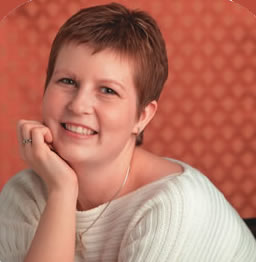
Cancer is something to fight, something to conquer. But what happens when it's gone? What does it leave behind? How does it alter a life? And, perhaps the most unsettling question:
Will it come back?
There are universal challenges for people who have been through cancer treatments and are trying to establish a new normal in their lives. The Rogel Cancer Center's Patient & Family Support Services empowers patients to share their experiences so the program can address those issues.
Surviving cancer is not an endpoint; it's a beginning.
Brandy Terwilliger
Age: 28
Hometown: DeWitt, Mich.
Survived: Hodgkin's Disease
Major Concern: Anxiety
Brandy Terwilliger can't stop thinking about cancer. It's hard to get to sleep. It pops into her mind when she gets up to go to the bathroom in the middle of the night. She has broken down and cried at work.
Cancer is gone from Brandy's body, but not from her thoughts.
Since finishing active treatment for Hodgkin's disease, Terwilliger has noticed her mood can change rapidly. She said she feels like few people understand what she's going through.
"I went through radiation and I was OK with that. I thought, 'If there's anything there, they're probably zapping it, so I'm good," she said. "But to go three months without seeing a doctor is a huge deal. I feel like they're my security blanket."
Take Action:
Many patients have similar concerns after treatment. Often, they seek out the U-M PsychOncology Clinic, designed specifically to provide counseling to people coping with cancer -- even after treatment ends. Complementary therapies -- such as guided imagery, art therapy or music therapy-may also help to alleviate anxiety.
"It's very normal for patients to seek help to cope with all that has happened to them," she said. "After treatment, people think they're supposed to be back to normal, and they're not. We can help with that."
Ron McCready
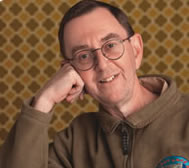
Age: 60
Hometown: Ann Arbor
Survived: Nasopharyngeal Cancer
Major Concern: Fatigue
After Ron McCready finished cancer treatment, one of his goals was to have enough endurance to take the Boy Scout troop he leads to the Straits of Mackinac. It's a week-long trip to an island without electricity. Each day follows the sun's rhythms: It starts before 6 a.m. and finishes after 10 p.m.
After six months of physical therapy and working out at the gym, McCready got his strength back and made the trip.
"I still go to the gym, but I know I don't have anywhere near the stamina I did," McCready said. "The difference between getting tired and getting exhausted is a heartbeat."
Take Action:
Research has shown that exercise, meditation, yoga and spending time in nature can measurably reduce fatigue. McCready worked with a personal trainer to develop a fitness routine. Talk with your health-care team about exercise. Or consider the cancer center's yoga class designed especially for people affected by cancer.
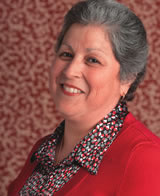
AnnaMarie Kish
Age: 48
Hometown: Taylor
Survived: Ovarian Cancer
Major Concern: Family Risk
No one in AnnaMarie Kish's family had ever had cancer. So it's unlikely that her ovarian cancer was inherited. But it doesn't stop her from worrying about her 19-year-old daughter.
"I don't want her to be concerned," Kish said. "But there's still a certain degree of anxiety. Is it going to pop up down the road, and yes, she should've been tested?"
Take Action:
Doctors confirmed that Kish's cancer was unlikely to be genetic. However, genetic counseling is available at the U-M Rogel Cancer Center for people with all types of cancer.
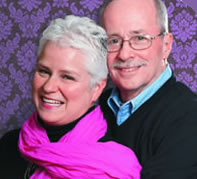
James Muir
Age: 67
Hometown: Farmington Hills
Survived: Prostate Cancer
Major Concern: Erectile Dysfunction
James Muir didn't have much doubt that surgery was the right treatment for his prostate cancer. But one of the side effects of surgery is still with him: erectile dysfunction.
"That was a little discouraging," he said. "They're telling me it could be a year or two before that comes back, but there's no guarantee that it will."
Muir and his wife, Janet, are participating in a new U-M Rogel Cancer Center Prostate Cancer Survivorship Clinic designed for men who have undergone radical prostatectomy. The clinic provides survivors with strategies to address their needs, including impotence.
Take Action:
Daniela Wittmann, a sex therapist for the U-M Prostate Cancer Survivorship Clinic, said many options exist to help men with erectile dysfunction, including medications and vacuum devices that create erections mechanically. Talking with a sex therapist can help couples make good choices-and address concerns women may be facing, particularly challenges to sexuality related to menopause.
"The goal is to make sure people know everything there is to know about how to maintain intimacy," Wittmann said.
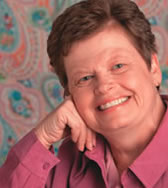
Susan LeClair
Age: 52
Hometown: Dundee
Survived: Breast Cancer
Major Concern: Moving Forward
When Susan LeClair used to get tired, it came on gradually. But now, there's no warning. It can happen in an instant.
"I'm dealing fairly well," LeClair said. "I guess the biggest thing is I'm learning to find that balance. Where do you find that balance where you've completed treatment and you have to move on? I've tried to stay very positive, but it's easy not to."
Take Action:
To help cope with the changes in her life, LeClair has made an effort to get informed and involved. She has read quite a bit about the issues cancer survivors face after treatment. LeClair has also tried to take advantage of what the cancer center has to offer. She has taken art therapy classes through the Complementary Therapy program and signed up for quite a few clinical trials.
Darrin Patterson
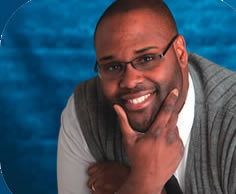
Age: 34
Hometown: Ypsilanti
Survived: Sarcoma
Major Concern: Changes in Body Function
When Darrin Patterson rolls up his left sleeve, you see the six-inch scar along his wrist and forearm. Just beneath it is the metal plate surgeons used to fuse his wrist in place after removing a tumor.
Patterson is the most positive guy you'll ever meet (and you may have met him-he works at the desk in the infusion waiting room on Level B-1). But every once in a while-say, when he picks up his 2-year-old daughter-the loss of mobility in his hand and wrist bothers him.
"I'm right-handed, which is a blessing, but I used my left hand a lot more than I realized," he said.
Take Action:
By lifting weights, Patterson has helped to increase strength -- and lose 40 pounds. Patterson also credits faith, music and sense of purpose with helping him cope with the change in his life.
"I'm still here in the lives of my family. You only get one life so why would I carry myself in pity?" he said. "It's just something I have to accept. It's humbling, but once I embraced it, I knew it would be something I could use to help someone else."
Sue Sexton
Age: 54
Hometown: Whitehouse, Ohio
Survived: Breast Cancer
Major Concern: Finding Balance
Sue Sexton plans to use this year to find a healthy balance between life and work. To do that, she plans to cut back on commitments.
"I'm trying to take a long view: Is this activity or commitment really something that's going to benefit me or just taking up time I don't need to spend?" she said.
One of thing she may decide to add to her agenda? The American Cancer Society's Making Strides walk.
"I still like to feel like I'm part of the movement," she said.
Take Action:
After treatment, cancer survivors often reorder priorities. Define what's important to you. Think about volunteering for a cancer charity. Consider new experiences to foster emotional growth. The U-M Rogel Cancer Center's Complementary Therapy program offers a wide range of opportunity to do just that.
Jennifer Falkey
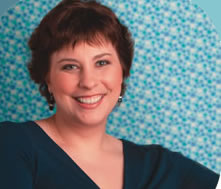
Age: 35
Hometown: Carleton
Survived: Leukemia
Major Concern: Figuring out how to get her life back on track
Jennifer Falkey thought she was just worn out: She had just received a promotion, was loving living in New York City and had a great social life. But then she was diagnosed with acute myeloid leukemia.
Since moving back to her hometown of Carleton, Mich., and undergoing treatment at the U-M Rogel Cancer Center, Falkey has reordered her priorities. She doesn't think she will return to her former line of work in chemical sales and marketing. She has started to think more about starting a family.
"I don't have any desire to go back to the crazy, stressful things I was doing for something that doesn't give back to other people," Falkey said. "I'm not exactly sure where this is going to take me, but I would love to be in a position where I can give my days to building awareness or fundraising for cures."
Take Action:
Use this time to reevaluate your priorities. Talk with a counselor or a life coach to help sort out what is important to you. Even if you aren't in a position to make a major career shift, consider getting involved in charity work.
Continue reading the spring, 2009 issue of Thrive
